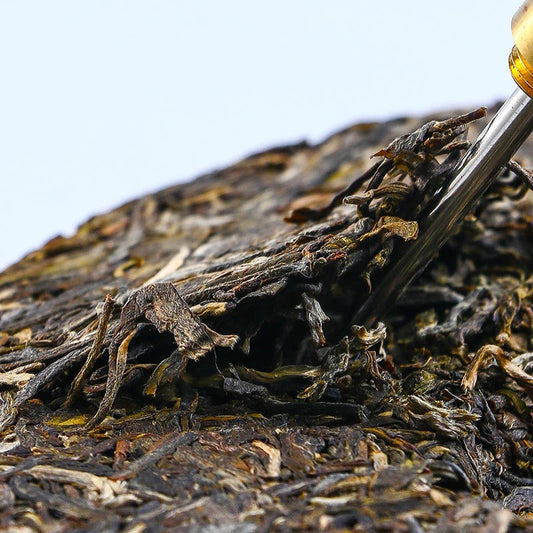Overview
Green tea is often hailed as a health elixir, packed with antioxidants and potential disease-fighting properties. However, this seemingly harmless beverage can pose health risks for some individuals. Despite its positive reputation, green tea may not be the best choice for everyone, particularly when consumed in excess or by those with certain health conditions. While green tea is celebrated for its numerous benefits, it can also cause adverse effects such as headaches, nervousness, and digestive issues. People with specific health concerns, including iron deficiency, caffeine sensitivity, and pregnancy-related conditions, should be cautious about their green tea intake.
Table of Content
- Introduction
- Side effects
- Who Should Avoid Drinking Green Tea?
- Dosage
- Conclusion
Introduction
Green tea is often celebrated for its numerous health benefits, including its antioxidant properties and potential disease-fighting abilities. However, despite its positive reputation, green tea may not be suitable for everyone and can pose health risks when consumed excessively or by certain individuals. Let`s explore the lesser-known side effects of green tea, identify who should avoid it, and provide guidance on safe consumption. By examining these aspects, we aim to offer a comprehensive understanding of why green tea might not always be the healthiest choice for everyone.

Side effects
Mild to Serious Headaches
Green tea can trigger headaches in some individuals, ranging from mild discomfort to more intense pain. This can be due to its caffeine content or other compounds that affect the nervous system.
Nervousness
Consuming green tea may cause nervousness or jitteriness, especially in sensitive individuals or when consumed in large amounts. The caffeine in green tea stimulates the central nervous system, which can lead to these symptoms.
Sleep Problems
Drinking green tea, particularly later in the day, can interfere with sleep patterns. The caffeine content may disrupt sleep by making it harder to fall asleep or stay asleep throughout the night.
Vomiting
Some people may experience nausea or vomiting after consuming green tea. This reaction can be due to the acidity of the tea or its impact on the digestive system.
Diarrhea
Green tea may cause diarrhea in certain individuals. This can occur due to its laxative effect or irritation of the gastrointestinal tract.
Irritability
Green tea contains caffeine, which can lead to increased irritability and mood swings, especially in sensitive individuals or those who consume it in large amounts.
Irregular Heartbeat
The caffeine in green tea can cause palpitations or an irregular heartbeat in some people, particularly if they are prone to heart conditions or consume high doses.
Who Should Avoid Drinking Green Tea?
Stomach Problems
The tannins in green tea can increase stomach acid, potentially causing stomach-aches, nausea, or constipation. To avoid these issues, drink green tea after a meal or between meals rather than on an empty stomach. People with peptic ulcers or acid reflux should limit their green tea intake. A 1984 study found that tea significantly stimulates gastric acid, but adding milk and sugar can reduce this effect.
Iron Deficiency
Green tea can reduce the absorption of iron from food. High doses can be fatal, with a fatal caffeine dose estimated between 10-14 grams (150-200 mg per kilogram). Green tea also decreases the bioavailability of non-heme iron, which is found in eggs, dairy, and plant foods like beans. A 2001 study reported that green tea extract lowers non-heme iron absorption by 25%. To counter this, add lemon to your tea or consume Vitamin C-rich foods like broccoli, which enhance iron absorption. Drinking tea between meals may have less impact on iron absorption, according to the National Cancer Institute.
Caffeine Sensitivity
Green tea contains caffeine, which can cause nervousness, anxiety, abnormal heart rhythms, and shakiness, especially in those with low caffeine tolerance. Excessive caffeine intake can also hinder calcium absorption, affecting bone health and increasing osteoporosis risk. To minimize caffeine-related issues, limit green tea to 5 or fewer cups per day.
Pregnancy and Breast-Feeding
Green tea contains caffeine, catechins, and tannic acids, which are linked to pregnancy risks. If you are pregnant or breastfeeding, limit your intake to about 2 cups per day, which provides around 200 mg of caffeine. Consuming more than 2 cups can increase the risk of miscarriage and other negative effects, and caffeine can pass into breast milk, affecting the nursing infant. High consumption may also lead to neural tube birth defects in babies.
Anemia
Green tea catechins can decrease iron absorption from food. For those with iron-deficiency anemia, the National Cancer Institute suggests drinking tea between meals. If you prefer to drink green tea with meals, pair it with iron-rich foods like red meat and Vitamin C-rich foods like lemons to enhance iron absorption.
Anxiety Disorders
The caffeine in green tea may worsen anxiety symptoms. If you have anxiety disorders, consider limiting or avoiding green tea to prevent exacerbating your condition.

Dosage
Drinking more than 8 cups of green tea daily can be unsafe. Consuming large amounts might lead to side effects due to the caffeine content, which can range from mild issues like headaches to more serious problems such as irregular heartbeat. Additionally, green tea extract contains a chemical associated with liver injury when used in high doses.
Conclusion
While green tea offers many health benefits, it’s important to recognize that it might not be suitable for everyone. From potential side effects like headaches and sleep disturbances to specific health concerns such as iron deficiency and pregnancy risks, excessive or inappropriate consumption of green tea can lead to adverse effects. If you experience any of these issues or fall into one of the at-risk categories, consult with a healthcare provider.
If you are sensitive to caffeine or have existing health conditions. For personalized advice, speak with a healthcare professional who can help you navigate your specific health needs.Consider trying Pu-erh tea from Puerh Craft if you're thinking about enjoying a cup of tea.
Q&A
Q. What are the common side effects of drinking green tea?
A: Common side effects of green tea include headaches, nervousness, sleep disturbances, nausea, and diarrhea. The caffeine and other compounds in green tea can affect individuals differently, causing symptoms ranging from mild discomfort to more serious issues.
Q. Who should be cautious about drinking green tea?
A: Individuals with stomach problems, iron deficiency, caffeine sensitivity, pregnancy, and anemia should be cautious about drinking green tea. The tannins in green tea can increase stomach acid, reduce iron absorption, and exacerbate conditions related to caffeine sensitivity and pregnancy risks.
Q. How does green tea affect iron absorption?
A: Green tea can reduce the absorption of non-heme iron, which is found in plant-based foods and dairy. The catechins in green tea decrease the bioavailability of iron. To mitigate this, it's recommended to consume green tea between meals and pair it with vitamin C-rich foods to enhance iron absorption.
Q. How much green tea is considered safe to drink daily?
A: Drinking more than 8 cups of green tea daily can be unsafe. High consumption may lead to adverse effects due to caffeine content and other compounds. To minimize risks, limit your intake to 5 or fewer cups per day.
Q. Can green tea affect pregnancy and breastfeeding?
A: Yes, green tea contains caffeine, catechins, and tannic acids that can pose risks during pregnancy and breastfeeding. Pregnant or breastfeeding individuals should limit their intake to about 2 cups per day. Excessive consumption can increase the risk of miscarriage and other negative effects, and caffeine can pass into breast milk, potentially affecting the nursing infant.






